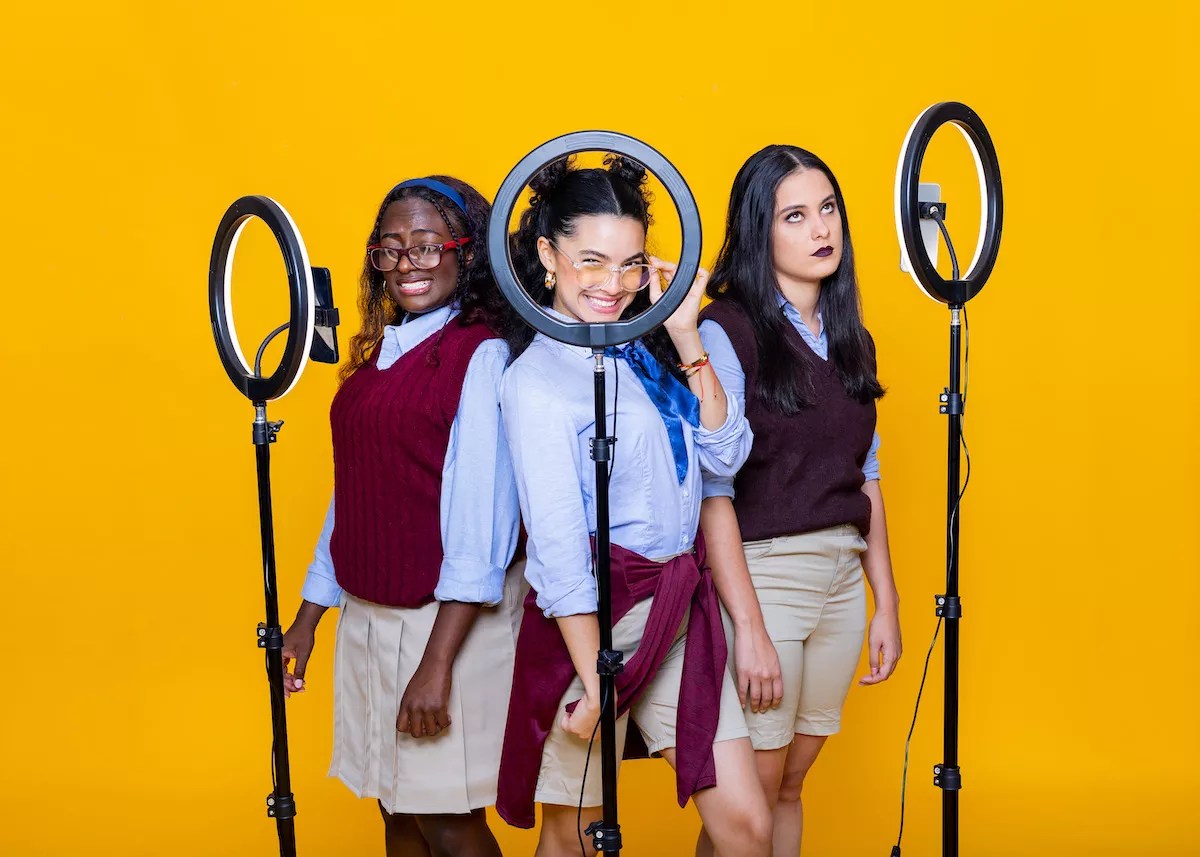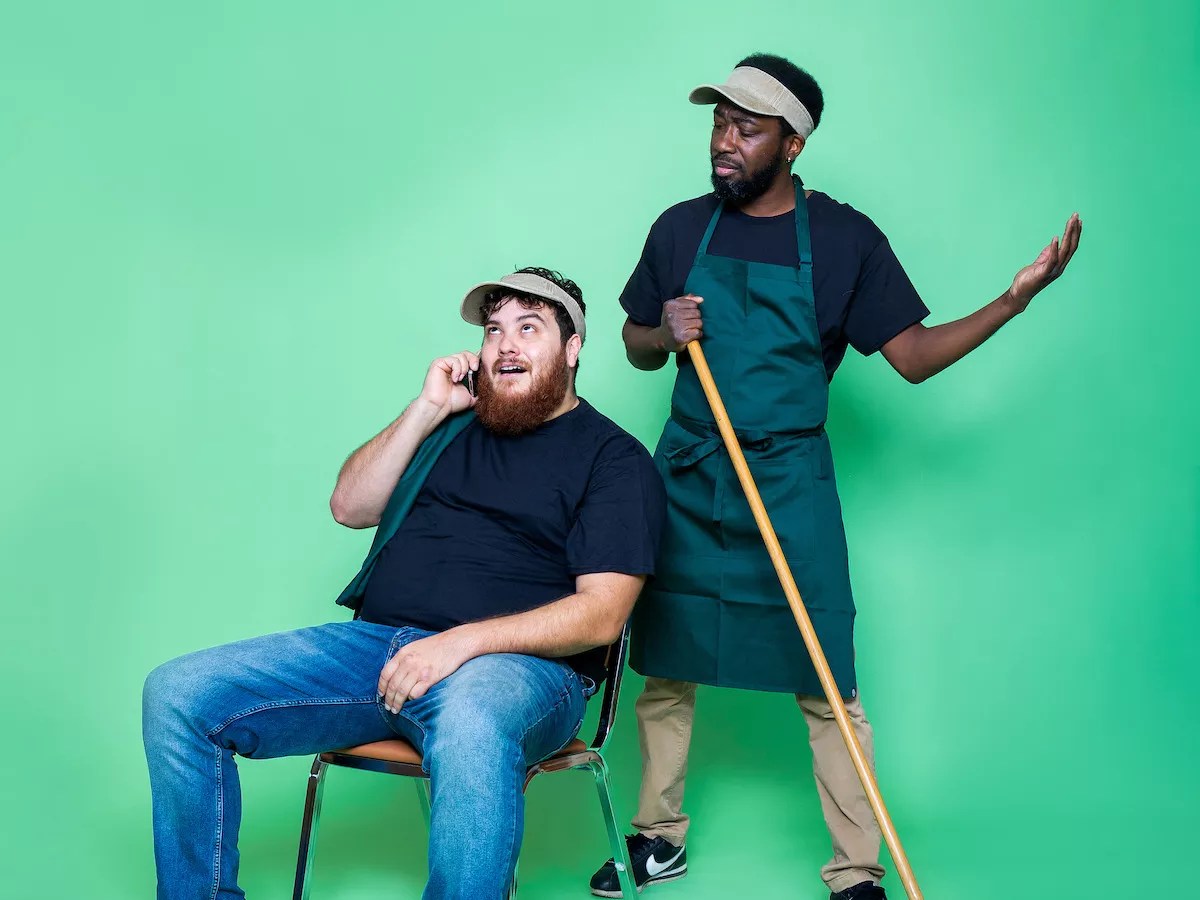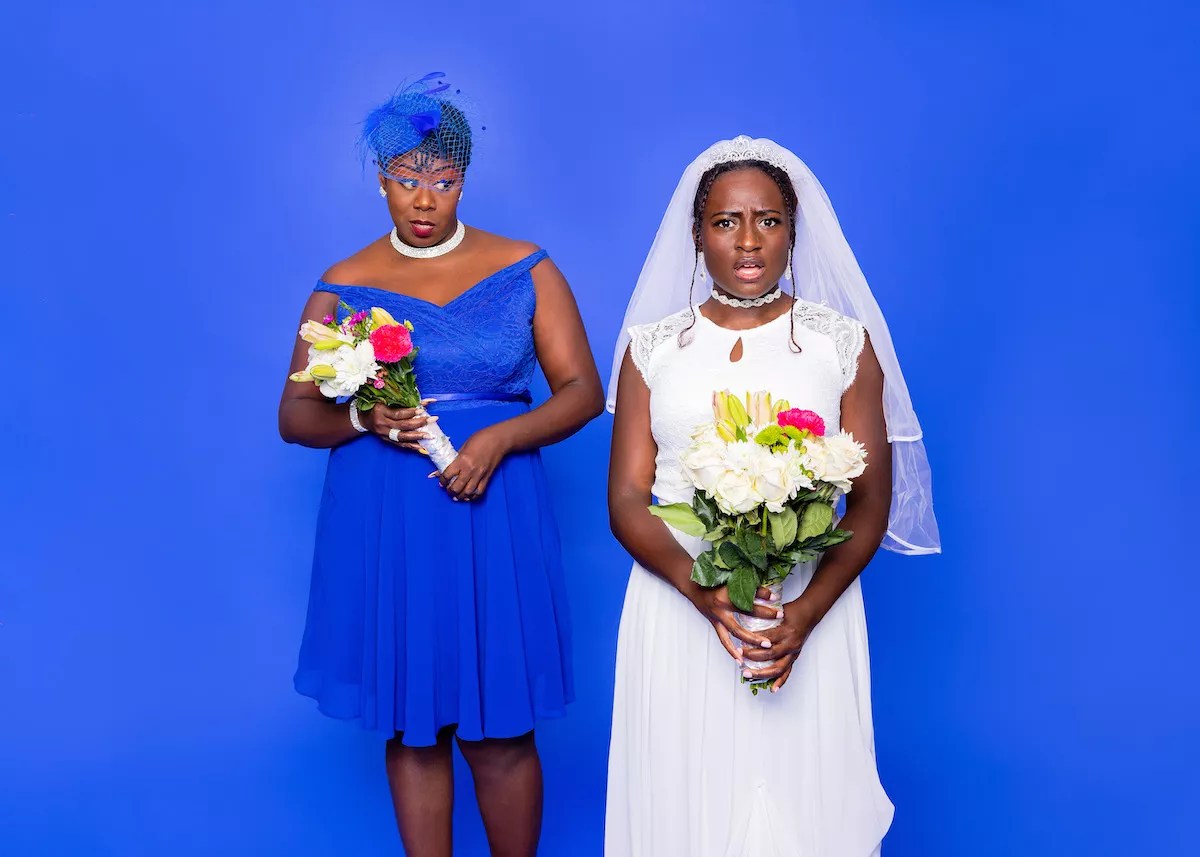
Photo by Morgan Sophia Photography

Audio By Carbonatix
Since 1996, when City Theatre founders Susan Westfall, Stephanie Heller, and Elena Wohl dreamed up an event to celebrate the art of the short play, the annual Summer Shorts festival has been a much-anticipated part of the South Florida theater season.
The Miami company’s programming has broadened over the years to include a full-length play, myriad readings at different locations, a middle school tour, a national playwrights’ conference, and a host of developmental programs. After two dark years during the pandemic and its aftermath, City Theatre bounced back with its postponed 25th-anniversary festival last June.
This year, the festival returns with yet another evolutionary twist: The world premiere plays that make up the festival have all been written by emerging BIPOC Miami playwrights mentored by Vanessa Garcia, whose play #Graced had its Zoetic Stage world premiere at the Adrienne Arsht Center for the Performing Arts in May.
Previews for Summer Shorts: Homegrown Edition take place Thursday, June 8, with the opening date Friday, June 9, and runtime through Sunday, June 25, in the Carnival Studio Theater at Miami’s Arsht Center. Eight new plays performed by an eight-actor company are in the lineup, with four directors at the helm and City Theatre artistic director Margaret M. Ledford overseeing it all.
City Theatre has long given opportunities to diverse playwrights and actors, aiming to create a sustainable arts ecosystem that will keep Miami artists living and working here. The difference this year is that the playwright cohort, the actors, the directors, and much of the behind-the-scenes talent are BIPOC artists.
“Philosophically and ethically, South Florida is so rich in many different cultures. But what so often floats to the surface at major theaters are white voices and mainstream voices,” says Ledford. “We have to ask, ‘How do we represent Miami?’ This festival isn’t about the ‘tourist’ Miami.”
Although past festivals have featured work by a lengthy roster of well-known playwrights – including Paul Rudnick, Lin-Manuel Miranda, Dominique Morisseau, Michael McKeever, France-Luce Benson, Christopher Durang, David Ives, and many more – Ledford says Summer Shorts aficionados will experience the kind of festival they’ve come to know and love.
“Nobody knows the plays they’ll be seeing going in. This is not less than. We’re exalting and amplifying what we have in our own backyard… I would hope that there’s a pride that this is coming from the 305,” she says.
Ledford says theater is, and should be, a social leader.

The playwrights of City Theatre’s Summer Shorts: Homegrown Edition are Sefanja Richard Galon, Chris Anthony Ferrer, Ivan R. Lopez, Luis Roberto Herrera, Phanésia Pharel, Ariel Cipolla, Lolita Stewart-White, and Joel Castillo.
Photo by Gregory Reed
“We have a lot of different theatrical tastes in Miami, but it’s important to remind people that a shared theatrical experience is not like anything else, particularly in a state that’s making it harder to speak out… We have to start the hard conversations.”
Homegrown master playwright Garcia credits City cofounder Westfall, who left her day-to-day leadership role in November and now serves on the company’s board, with the vision of finding “BIPOC writers, putting their work onstage here and pushing it out into the world.”
During the 18-month program, Garcia is working with the eight playwrights on their short plays, full-length plays, and a collectively written piece to be titled The Unbound. She has also brought in a variety of theater professionals to talk to the participants about different aspects of achieving success as a playwright.
“City has always given voice to people who needed it in a particular moment. It has brought the voices of women to the forefront; same thing with BIPOC and Latinx writers,” says Garcia, who adds that this year’s Summer Shorts feature a collection of what she dubs “calling card” plays. “This cohort is going places.”
The eight playwrights of Summer Shorts: Homegrown Edition are diverse in terms of age, experience, and background.
Lolita Stewart-White is an African-American poet and filmmaker who is adding playwright to her skill set with Summer Shorts. Ariel Cipolla, a Mexican-Argentine playwright and dramaturg who recently graduated from Florida International University, was part of City Theatre’s Next Gen Young Playwrights program in 2017.
Chris Anthony Ferrer, who played Lewis in Garcia’s #Graced, is a New World School of the Arts alum who made his professional playwriting debut with Swindlers at the Aurora Theatre in Lawrenceville, Georgia. That piece was directed by another Homegrown playwright, Ivan R. López, a Cuban-American actor-playwright-director from Miami who is an FIU faculty member.
Phanésia Pharel, whose bio notes that she grew up on a dragon fruit farm in Miami, is a Haitian-American Barnard College grad living in San Diego, where she’s a full-time graduate student; she has also had numerous fellowships, commissions, and residencies. Sefanja Richard Galon, who was born in Miami and grew up in Suriname, is an actor-director-playwright who graduated from New World School of the Arts and recently made his professional directing debut with the Main Street Players’ production of Lynn Nottage’s Sweat.

Brette-Raia Curah and Roderick Randle consider the future in Phanésia Pharel’s And Other Dreams We Had.
Photo by Morgan Sophia Photography
Luis Roberto Herrera, a Columbian-American playwright and actor who graduated from the University of Florida and the New School and who teaches at New World, is a prolific playwright who performed his solo show As I Eat the World at New York’s Frigid Fringe Festival in February. Joel Castillo, a Cuban-American University of Miami graduate, has been writing plays since high school and now writes mainly for his students at the arts magnet Coral Reef Senior High School.
As they get ready for the more intense focus that Summer Shorts: Homegrown Edition will inevitably bring to their work, the writers are juggling fears, excitement, and anticipation – the gamut of feelings that any playwright has on the way to an opening.
“I have not written this much in my life. I like to write papers, essays, and presentations for school. I like to write long paragraphs. But I realized that’s not how people talk,” says Galon. “I’ve had to switch up my writing style. It’s terrifying, but you have to find it… I’ve rewritten my ending four times. And every time, it got better.”
Herrera, who studied playwriting with Carbonell Award-winner McKeever at New World, says writing a short play for the festival is “like going home. I’m used to writing plays that are 50 to 120 pages. Now I’ve written 12 pages. It was a relief that I didn’t have to worry about anything being complicated.”
Pharel, who, like Cipolla, was part of City’s Next Gen program in high school, says she was inspired to become a playwright when she watched Benson’s Risen from the Dough at an earlier Summer Shorts festival.
“That was the first time I witnessed the Haitian community of Miami be honored. It was specific, true, and made me really happy. I dreamed of being a Summer Shorts playwright because it’s a big deal,” exclaims Pharel. “So many great writers have passed through this festival… It means the world and makes me feel like I need to raise the bar.”
After living in New York and now California, Pharel is beginning to see career possibilities in her hometown.
“This is happening in large part because of Margaret Ledford and [executive director] Gladys Ramirez, [who] are unrelenting in advocating for BIPOC voices and making sure City Theatre Miami reflects Miami,” she says. “I partially left Miami because all the writers I knew from Miami [felt they] had to leave. This festival proves you don’t.”

Raul Ram
Photo by Morgan Sophia Photography
Ferrer believes the possibilities for Miami’s BIPOC playwrights are getting better – but he feels the need for further change.
“The community is reflecting a lot more diverse work. This is really more about professional clout,” says Ferrer. “When I graduated from college, theaters would say their subscribers wanted to see Oklahoma! for the 15th time.”
Herrera has felt the bias toward the traditional and the safe in programming, too.
“Plays that get chosen are by white playwrights or playwrights who have a previous relationship with a company. South Florida doesn’t feel like a place for new playwrights. I came back [after grad school] because I wanted to be part of the change,” he says.
Herrera points to what’s happening in other cities, particularly New York.
“It’s so sad and frustrating. Off-Broadway, you have all these stories by BIPOC and Latinx writers getting rave reviews. Fat Ham [by James Ijames] is a queer, Black adaptation of Hamlet that won the [2022] Pulitzer Prize. The lack of opportunities is what makes people in this area leave.”
Expanding audiences by telling more inclusive stories will pay off down the line, the playwrights believe. Cipolla thinks that, while audiences that turn out for theater don’t often reflect Miami’s broad diversity, Homegrown will demonstrate what theater can be.
For Summer Shorts: Homegrown Edition, the acting company and the festival’s four directors are as diverse as the playwrights’ cohort.
Playing multiple roles are Toddra Brunson, Brette-Raia Curah, Samuel Krogh, Lauren Cristina López, Evelyn Perez, Chabely Ponce, Raul Ramírez, and Roderick Randle. The performers were found both through auditions and a conscious effort by Ledford, Garcia, and Ramírez to seek out the region’s BIPOC talent.
“We spent a lot of time making sure we saw a lot of theater, and not just at the major companies,” says Ledford. “These playwrights are writing for younger voices, so we saw plays at FIU and went to New World’s showcase. We wanted to find emerging actors, too.”
As for the multifaceted directors – they are teachers, actors, filmmakers, and writers – each is staging two plays.
Alex Alvarez, a Cuban-American artist who has acted in five editions of Summer Shorts and Winter Shorts, is directing López’s I Found This on the Web (a comedy about dating in a world permeated by AI) and Stewart-White’s 7 (a play about a jittery bride who might or might not recommit to her husband of seven years).

Toddra Brunson and Brette-Raia Curah debate a vow renewal in Lolita Stewart-White’s 7.
Photo by Morgan Sophia Photography
Joshua Jean-Baptiste, a Haitian-American filmmaker and co-creator of the digital series Grown, is staging Ferrer’s 2201: Xibalba (a wild sci-fi comedy involving a space cadet and a wormhole) and Galon’s Banana Bread (a dramedy about a friendship torn asunder by corporate maneuverings at a banana bread shop).
Maha McCain, an actor-director who teaches at the University of Miami, is directing Pharel’s And Other Dreams We Had (a young couple is on the cusp of a dream or nightmare) and Herrera’s Plastic Flowers (about estranged friends arguing as they visit a comatose pal in the hospital).
Melissa Almaguer, a Cuban-American actor-director who teaches at Felix Varela Senior High School and who most recently starred as Catherine in Garcia’s #Graced, is staging Castillo’s Ballóo(n) (in Havana, a honeymooning Miami couple encounters a balloon seller) and Cipolla’s The Vultures (a trio of teens is set on doing a social media rebrand before starting high school).
In working on Homegrown, Alvarez has felt City Theatre’s intention becoming reality.
“It doesn’t happen that often that your values align with the story you’re telling. It’s great to give new voices a chance, to uplift those who are just starting,” he says.
Jean-Baptiste believes that change needs to start with the people leading companies, and not just artistic directors.
“Other companies should take a page from what City Theatre does, from M Ensemble and Miami New Drama,” he says. “Real conversations need to start at the top and trickle down. Do you have a board that reflects a diversity of thought? Miami is hella diverse.”
Almaguer adds, “I know what it’s like to feel that a lot of stories I see onstage are not my stories… There is so much talent here, so many stories that deserve to be told. For me, as an artist, that’s the most exciting thing.”
For herself and anyone else who loves theater, McCain advocates broadening perspectives and taking chances.
“We’re in a time now when we can’t have fear about pushing back, especially in this state, where it can be terrifying to be an artist and a teacher,” she says. “I need to be taken out of my comfort zone. I can learn things that are different from me. I don’t want everything to sound and feel the same.”
As the playwrights of Summer Shorts: Homegrown Edition get ready for their cohort’s first milestone, they’re continuing to bond, network, and figure out how to build on the opportunity City Theatre has given them. Stewart-White, for one, is confident they will.
“We’re not waiting for anybody; I think Vanessa Garcia is the model for that. We’re the new ambassadors of what can be done,” she says. “Everybody is super talented, super energetic. The door is cracked, and now we’ll come through.”
– Christine Dolen, ArtburstMiami.com
Summer Shorts: Homegrown Edition. Thursday, June 8, through Sunday, June 25, at the Adrienne Arsht Center for the Performing Arts, 1300 Biscayne Blvd., Miami; 305-949-6722; arshtcenter.org. Tickets cost $50 to $75. Performances Thursday through Friday 7:30 p.m., Saturday 3 and 7:30 p.m., and Sunday 3 p.m.